#Etiquette of the belle epoque
Explore tagged Tumblr posts
Text
Etiquette of the Edwardian Era and La Belle Époque: Ball

This is a new set of posts focusing on the period of time stretching from the late 19th century to the early 20th Century right up to the start of WWI. I'll be going through different aspects of life. This series can be linked to my Great House series as well as my Season post and Debutant post.
Let's throw a ball, my darling. It is the age of elegance and opera gloves. Etiquette during these events was as intregal as the music. So let's delve in and dance the night away.
Preparing to host a Ball
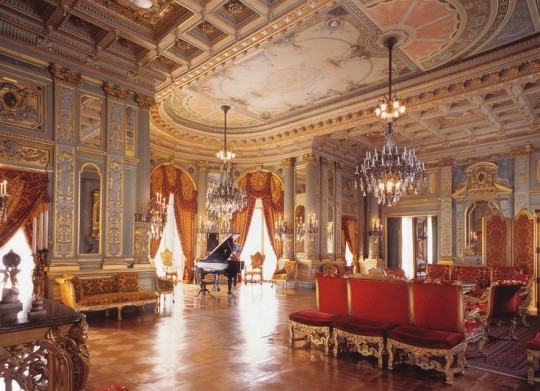
Balls in this period weren't just little get-together with a little music in the corner. These were large productions and required the entire household to pitch in. The ballroom would have to be cleaned, chandeliers would need polishing. Any large halls would need to be cleared of any furniture to accommodate a large crowd. If throwing a ball, you need to set aside more rooms than just the ballroom. You will need a room to store any cloaks, coats and hats (a valet and lady's maid would have charge of this), a room for refreshments and sometimes a room set up for any other entertainment such as cards. The dining room would also be needed for a supper (yes, suppers are expected). A ball requires the best of the best. Musicians would be hired, the kitchens will be slaving all day, butlers will be decanting the best wines and select the finest liquor, and rooms made up for anybody thinking of staying the night. The kitchens will have to prepare light snacks as well as the late supper, so everything must be cooked at exactly the right time and kept in optimum condition until needed. A red carpet would be laid from the front door right down to the pavement with an awning to keep the worst of the weather off. Invites should be sent out a few weeks prior and should attempt not to clash with any other event, you may compete who has the best ball but you should never force guests to snub another to go to your ball. Servants should be prepared for a long night, so they may dine earlier in the day to sustain them. Footmen would wait outside to open carriage doors and direct guests to the door. The butler would have to greet them, announce their arrival (not by order of rank but simply in the order they arrive) in the hall and then toward the coat rooms to relieve themselves of any coats or hats. These balls were very expensive affairs. Between food, drink, entertainment, their clothes, wages and getting their house up the snuff, a host could expect to fork out thousands if not more. Alva Vanderbilt's great costume ball cost her $6 million in today's valuation ($250,000 in her era).
The Hosts on the Night of the Ball
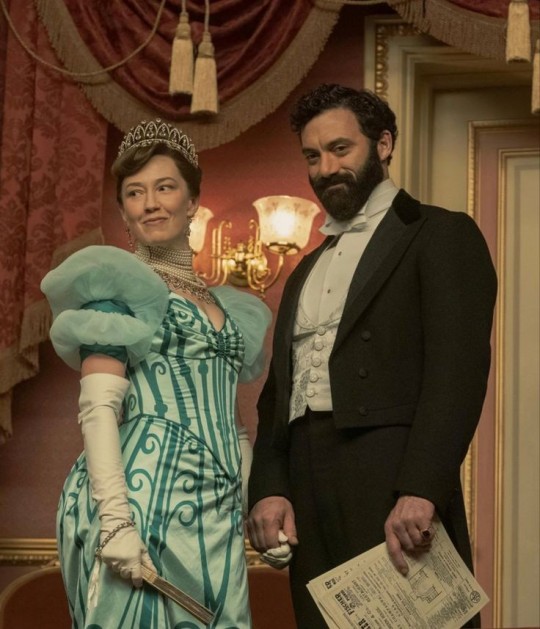
The hosts of the ball should be ready to recieve guests promptly. The lady of the house should be downstairs an least an hour before kickoff to check the work of the servants and provide last minute commands. The hosts would wait in the hall and greet guests. The butler will announce every guest while valets and lady's maids take charge of any coats. After guests have shed their coats, they would then greet the host, usually exchanging a few words and thanking them for the invitation before being escorted into the ballroom. The hosts would usually begin the ball themselves or if there was a guest of honour, they would allow them to open the ball. Dancing is only meant to begin with the invitation of the hosts. If there's music playing, it's not an invitation to dance. Hosts have a duty to ensure everyone is having a good time. They will be expected to dance and ensure people are partnered.
Guests
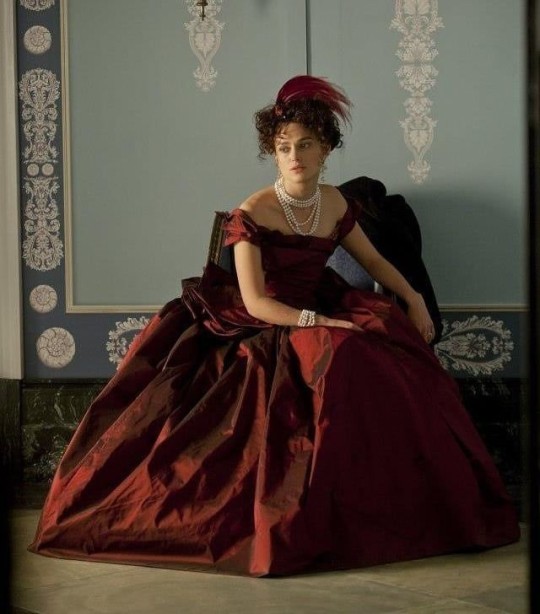
Guests are expected to arrive in a certain time frame. Balls usually begin quite late into the night, usually around 10pm. It would do no good to arrive too early and ride to arrive midway without a viable reason. There may have been a previous event, such as a theatre engagement or an opera so if you are coming from there and everybody eksevgas arrived on time and you show up late, you had best apologise. Guests must only attend if they have been invited by the hosts. You can't just rock up to a ball and expect to be admitted. If a guests wishes to have a friend who is a stranger attend the ball, they can request for the host to invite them. Guests will arrive by carriage or on foot if they live nearby. If arriving by carriage, one must allow for appropriate space between coaches and room for them to pull out. Also, it is a good idea to remind your driver when to collect you. Guests are always expected to greet the hosts as soon as they can, thank them for the invitation and be courteous at all times. Guests should not comment negatively on anything the hosts have provided such as the food or music, it's better to reserve opinion until another less public event. Guests are encouraged to mingle but strangers must be introduced by a mutual acquaintance or even the host. Wandering off through any section of the house not designated as part of the ball is prohibited as is sneaking off into the gardens. Also if one expects to stay for the night (say you live far away and have travelled to get there) you must have requested it of the host a few days at least before.
Dancing Etiquette
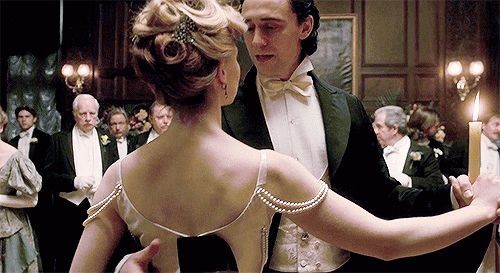
Dancing is one of those things in this era that isn't just a pastime but a ritual. Men asked women for the privilege of a dance, a waltz perhaps. Women would not ask a man. Women would have dance cards where gentlemen could request to partner them for certain dances. If a woman has turned down a gentleman for any reason but has no designated partner for the dance, she must sit that particular dance out. A lady should limit dances with the same partner lest it be a root of scandal: it is not considered terrible to dance two dances with the same partner but questionable if you were to dance with the same partner for multiple dances in a row. It is frowned upon for a lady to reject a dance partner when it is his honour after accepting him earlier. And also highly insulting for a man to spurn a dance partner he has sworn to dance with. It is usually customary for the man to ask whether his partner would like a refreshment, wherein he can escort her to find it. They may chat until the next dance whereupon he must excuse himself with a bow and relieve her of his company so she may dance with her next partner. When supper is announced, the last partner is ecoected to escort his lady into the dining room.
Timeline of a Ball
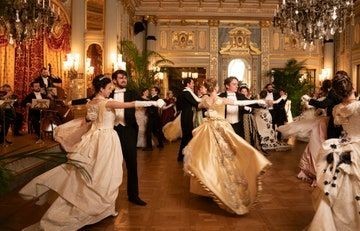
As stated above, Balls usually start around 10pm (but can be held earlier). Once all the guests have arrived and the hosts enter the ballroom, the dancing can go on. Around 1am there would be a light supper. Small refreshments such as canapés would be available throughout usually offered by footmen stationed around the house. Servants would stay up around the clock to unsure that everything runs smoothly, fetching drinks and later after the ball studying up. Balls would end about 3-4am, whereupon carriages would return to fetch guests and ferry them home. Guests staying would head upstairs. Anybody staying over would be treated to a breakfast in the morning.
Theme
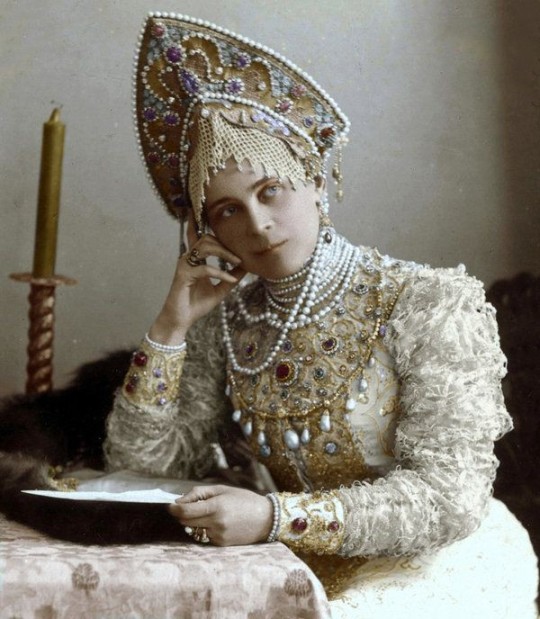
Many balls were themed. Themed balls were usually announced months in advance to allow costumes to be made. A guest should not arrive without having paid attention to the theme as it not only can show poor time management but may be seen as an insult to the host. All guests were expected to adhere to theme where it be a "servant's ball" where they would dress as servants or even a Costume balls are all about extravagance but it's better to rein yourself in (we're side eyeing you, Kate Strong). The grandest costume ball of all time was of course Alva Vanderbilt's grand affair of March 26, 1883. Costume balls were very expensive affairs, with some guests spending up close to thousands of pounds/dollars on their looks. At one ball in 1893, the infamous Bradley-Martin affair, guests spent nearly $400,000 on their costumes - during a particularly bad financial crisis. The overall party cost $10 million.
Dressing for a Ball
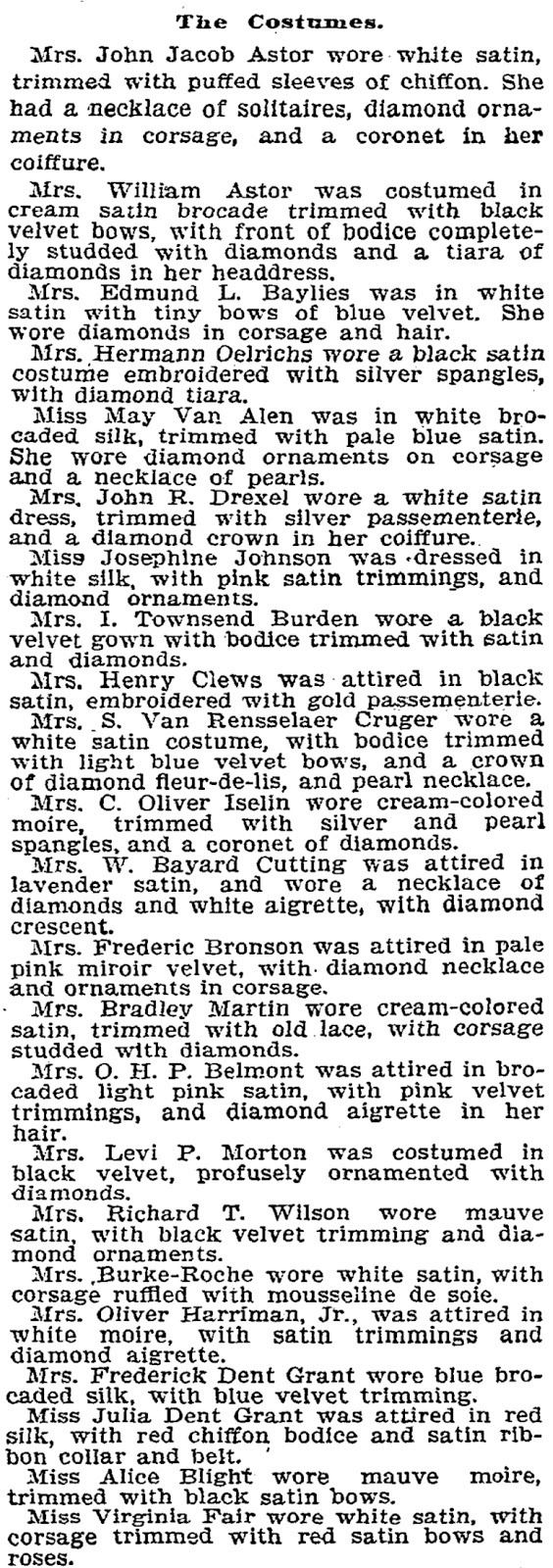
Dressing as you know from the previous post is a large part of etiquette of this era. The right costume for the right event is paramount if one wants to make the right impression. Newspapers often wrote about who wore what so it was important to dress your best.
Men must wear a suit or tailcoat, always black. A ball is white tie so he must dress accordingly. He would arrive with a top hat which he would surrender to a valet. He would keep his gloves on when dancing.
Ladies are encouraged to wear a gown usually of a subtle colour with with a décolleté that leaves the upper arms snf shoulders bare. A woman's gown was important as it not only helped her stand out.
A sensible woman for goes her heels and wears pumps to dance as she will be on her feet all night.
Tiaras are beautiful but when dancing all night, it's perhaps best to pick the lightest or go for a simpler headpiece such as a feather or a broach. Wearing a heavy tiara all night while dancing will give you a migraine (it's painful).
Also it's better not to over accessorize. You don't want to be mid spin and all your pearls go scattering across the floor or catch a bracelet in your partners' jacket. Minimalism is best.
A woman may even chose to decorate her gown with fresh flowers.
How to Behave at a ball
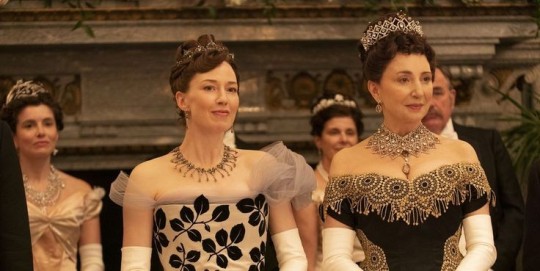
Gloves are to be worn at all times when dancing. You only remove your handling food or playing cards. White gloves are preferred but light shades can be forgiven. Gloves for women are worn to the elbow, men's to the wrist.
No lady should arrive at a ball without an escort, either an older woman or a family member.
Men who come to the dance and are unwillingly to dance despite being able to should stay away (I'm not kidding, this is in several etiquette books)
Married couples are not expected to dance together but it is not barred.
A man should always be careful of his lady's train and that of any other. Do not stand on them.
Outward PDA is not permitted. A kiss on the hand or kiss on the cheek is permitted, as is a hand tucked into the crook of an arm but one must swing out of people.
Don't hurry onto the dancefloor (even if it is your song)
When a gentleman seats a lady at the table, he must offer her thanks for her favour.
If a lady does refuse to partner a gentleman but then dances that dance with another without prior agreement, the gentleman is expected to restrain himself from confronting her. He is permitted to never offer her a dance again if this happens.
No lady should ever be unaccompanied at any time. They should have a companion or an escort to make sure they are kept in the loop at all times.
If dancing a set, your choices must be made swiftly and wisely.
A gentleman is without saying barred from going into the women's coat room. That's a no no, stay out of there.
If a gentleman wishes to partner a woman he doesn't know, he must have a mutual friend to introduce themselves and if they don't have one, the host would be on hand to introduce them.
When attending a ball, it's better to avoid heavy topics of conversation. It's better to stick to neutral smalltalk. No party is enjoyable with people standing on soap boxes.
When dancing, good posture is not only favourable but stops the body from any undue movements.
Try not to join in when the dance is midway or almost over. Be prompt.
If your partner is missing, you should not replace them. You should sit the dance out.
The hostess is in charge of ensuring that her female guests are provided with a partner if they wish to dance and gave not been asked.
If a man accompanies a woman to the ball, he's expected to dance with her on her first and last dances of the evening.
If one invites a lady to a ball, a carriage must be provided to ferry her.
Popular dances of the era
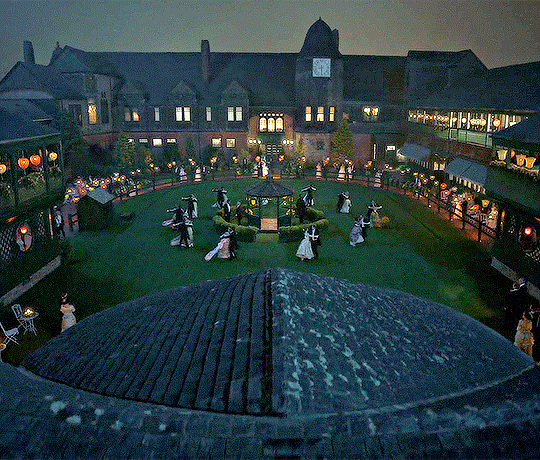
Waltz: The Waltz is seen by many as a reserved dance nowadays but in this era it struck many as a questionable dance because of how close the couple must get. It is a simple dance, requiring 6 steps all with a "box step". It's an elegant and popular dance of the time. A gentleman or whoever is leading should place their hand on the waist of their partner and their partner should rest their hand upon their shoulder.
Cakewalk: The Cakewalk had it's beginnings with enslaved peoples on American plantations. It was a satire poking fun of white plantation owners, mimicking the way they behaved at their own balls. It was later adopted into white society who did not get the joke. It was a group dance where multiple couples set themselves in a square (men on the inside), stepping and strutting to the music. In some instances, a cake was awarded to the most impressive couple which gives the dance it's name (also because it was a piece of cake to perform). The Cakewalk is seen by many as the seed of many of the jazz dances that would dominate the 20s.
Polka: A Polish dance. It requires 3 swift steps followed by a hop. The music is at is 2/4. The couples circle about the dance floor.
Krakowiak: A Polish dance for multiple couples. The leading male dancer (from the first pair) leads the steps for all the couples, and on approach to the band must tap his geeks and sing an improvised verse to his partner, the rhythm the band must match. The couples break up to form a circle. The leading couple will remain before the band. The couples would then dance around the room during the rest of the tune.
Mazurka: This is a lively dance, with it's beginnings in Polish folk dance. Couples gather in circles. The dance requires music with a forceful accent on its second beat, in time at 3/4 or 3/8. This dance has no set figure, relying on the skills of the couple yo improvise. However there are over 50 different steps.
Redowa: A Czech dance. The dance begins with a closed position, their clasped hands pointing the direction they will dance. A leader (the first couple) will take a slight leap around his partner with their left foot tmfollowed by a gliding step with their right. This foot must be pointed, the left leg slightly bent and the back straight. The next set turns the leader about toward the front line again, their left leg is now forward and straight, the right now bent. The left leg is now meant to tuck beneath the right leg with is extended backwards. Another leap to the right leg finishes the pattern. The next couple, the follower, begins movement on the early beats where the leader makes moves on the second set of beats
Castlewalk: The leader moves forward while their partner goes backward. The partner is guided around the room, the leader's arm around their right side under whilst their lest hand rests on the leaders opposite shoulder. Their other arms are clasped, held aloft. The leader begins on their left foot, their partner on their right. They will move with gliding steps, stepping on each beat of the music. They will dance in a circle, moving about the room with other couples, their circle gradually growing smaller and smaller on three very quick turns.
Quadrille: The Quadrille is an older dance but still very popular in Gilded Age America. It is made up with a series of 4-6 contredanses (country dances). The Quadrille is a group dance, made up of sets. The standard Quadrille is five parts, the Viennese contains six. Each section is danced with a combinations of figures. A combination was a set of steps and movements. Examples would be the ladies chain (chaîne des dames) or the two hand turn (tour de deux mains).
#Balls#Etiquette of the Edwardian Era#Etiquette of the gilded age#Etiquette of the belle epoque#belle epoque#Edwardian era#The gilded age#How to write a ball#ballroom#Fantasy Guide to writing a ball#Fantasy Guide#Writing reference#writing resources#Writing research#writing#writeblr#writing reference#writing advice#writer#writers#spilled words
622 notes
·
View notes
Text
Corsetred damsel 🎀🌹

Lina Cavalieri ❤
89 notes
·
View notes
Text
Disclaimer: For entertainment purposes only. This is merely based on speculation by personality traits (that I know of), psychology and looking at their photos. There may be some inaccuracies in here and some parts are fictionalized. And remember kids, give credit where it’s due.
What the historical GRF (of the Victorian/Belle Epoque eras) could have careers in if they were living in the present times and were commoners:
George (née Prince William of Denmark): A diplomat no doubt. If not a diplomat, than a businessman who owns a global business. Has a background in politics and international business. Interested in learning about other cultures. Possibly worked as an intern in a firm/company relating to global business in university/uni.
Olga (née Grand Duchess Olga Konstantinovna of Russia): Possibly a literature or humanities teacher (for 11-18 year olds). Could be a teacher of social etiquette. I’m also getting a headmistress (of the education kind) vibe too. Despite the unassuming looks, she will make you work hard to get a good grade in her class! May have worked either as a teacher’s assistant or a receptionist for her mother’s beauty salon during university/uni.
Constantine: Definitely law enforcement related, possibly a cop and/or detective. Calm and patient in very tense situations. Worked as a night security guard for a nightclub (to the disapproval of his mother who thinks all nightclubs play vulgar music and women dress very scantly which isn’t true) where he met his wife Sophia. Not very tech savy for a cop nor detective (to the annoyance of his two eldest sons). Doesn’t care that much for the latest tech gadget and the last one to get the newest/latest tech device. Even his parents get the latest tech gadgets before he does!
George: Possibly did a various of night security jobs and sport coaching jobs before finally settling in a government job of some sort. Still does sport coaching in his free time. While he did go on many dates with people from both sides of the fence, he’s doesn’t want to get married. He was engaged at one point to a psychologist/marriage therapist by the named of Marie Bonaparte, but both called it off. Interestingly, they became platonic friends after dealing with a lot of conflict and misunderstandings. Possibly worked as a pizza delivery driver (and didn’t get stiffed a lot. Wonder why?) during his university/uni years.
Alexandra: Possibly a teacher like her mother. Unlike her mother, she teaches the little ones (3 to 8 year olds). Is thankful she has medication for her needs and health so she can do things that she wants (in thanks to her sisters-in-law Sophie and Alice). More than likely worked either as a nanny or an au pair during her university/uni years.
Nicholas: A detective (like his eldest brother Constantine). Has a sentimental side underneath the calm exterior. Good at solving problems and conflicts (which is why he chosen to be a detective in the first place). Likes crime and mystery shows and books. Loves to paint in his spare time (and made a decent amount of money from the paintings he sold). Possibly worked as a clerk/intern at a law firm during university/uni years.
Marie: Event planner (mainly for corporate companies and weddings). Went to cosmetology school to be a hair stylist but left three weeks later because she realized it wasn’t for her. Possibly has a celebrity gossip channel on YouTube. Dabbles in writing romance novels. More than likely worked as a waitress at an affluent restaurant while studying to be an event planner.
Andrew: Definitely something related to computers (like a computer technician). Could also be an accountant. The most tech savy of the family. Math was possibly one of his favorite subjects in school. Knows the latest political news and doesn’t care about celebrity gossip at all (a trait he shares with Constantine). Worked as a tech support specialist during university/uni years.
Christopher: Journalist and writer. Always loved telling and creating stories for his friends and family since he was young. Possibly written multiple fanfics of his favorite shows, movies and books (to the embarrassment of his older self). He likes going to some metal shows with his nephews George and Alexander once in a while. Possibly worked as a host in a restaurant during his university/uni years.
1 note
·
View note
Note
Scenario for oikawa and kenma with an s/o who meets their parents for the first time? Thanks!!!!
I have no excuse. I’ve been tearing through period novels lately and really could not help myself. I hope you don’t mind overly much the amount of pointless fluff in all this! (Plus a small reminder regarding the one-character only announcement I made a while back. Very sorry!)
From a distance where they had stopped atthe foot of the long drive, the house appeared as if plated by thick strips ofgold, gleaming against the knife edges of the sprawling estate, having beenspread straight onto the walls still molten from the forge. It could be nothingbut a simple trick of the brimming summer sunlight, but you found your eyesstinging all the same from the sharp reflection of the afternoon light.
You were early for tea, which Oikawa’s parents had invited you towith a thick, scented letter in the post and few words to occupy said parchmentwith. My mother, he had said with awry smile at the smooth, loping curves of her minced words, she’s never been one interested in beatingaround the bush. He’d stretched out his hand dutifully for the invitation,and that was the last you’d seen of that lush stationery in your apartment.
Neither the lack of reminder nor Oikawa’sattempt at describing his family had managed to soothe your anxiety much. The‘beating around the bush’ aspect reminded you far too much of your own mother: awoman acceptably interested in coating her chosen words with confectionary, butnone too willing to spare someone’s feelings when there were simply a thousand moreimportant things to be getting on with.
On the other hand, the prospect of meetingOikawa’s father seemed to be a much less daunting encounter to anticipate. Allthe families you’ve had the pleasure to meet thus far at several dozen dinnerparties and gatherings had their fair share of prickly, difficult sons. Alongwith the package often came exasperated fathers attached to determined wives indazzling gowns. But perhaps the geniality of the gentry wasn’t the best thingto ponder when you were, quite literally, at the steps of your doom.
Oikawa had his left hand trapped in yours,but with his right he reached over to give you a lightning fast flick on theforehead. The tiny jolt of pain had you rubbing at the spot roughly until youthought you might have started growing tomatoes on your forehead, but when youlooked, Oikawa simply raised an eyebrow and smirked.
“You were fretting so loudly I could barelyhear myself think.” He lifted his encased hand and gave it a demonstrativeshake. “See?” He said, as if you would consider seeing. “Almost dead from lossof circulation.”
On simpler, fledgling days, you would havesniped back at him with whatever danced on the tip of your tongue, but this wasfar from safety, far from home, and one never knew who would be keeping an earopen around the corner for new gossip. You refused to disgrace yourself to yourhosts before even introducing yourself. “How unfortunate,” you said instead,and gave his hand a vicious squeeze. His yelp, as always, was rather satisfying,but with extra care you kept your smile at bay, stretching your face evenly intoa serene, peaceful lie that would seem faultless in social situations. It wouldbe good practice for later on in the evening, when there were no teasingcomments but careful, calculated questions in their stead.
The driveway leading up to Oikawa’s familymanor was newly paved with gravel and lay wide enough to fit four cars side byside. It was one of those dramatic estate roads, measured originally for largegatherings where gilded carriages would often require ample space for their ornamentation,glittering like pebbles of silver and starlight underneath the warm lamps thatembraced the fringes of the drive. Those had been replaced too, in the place ofwick and wax there were bulbs, unapologetically round and required only asingle lucid groundskeeper to operate.
You wondered if his parents would be thetype to have cocktails banned from dinner in the spirit of good manners, andwould go on and on about the old, glorious days where they held balls everyother week and when men were still required to wear wigs.
The image of Oikawa with a mound ofridiculous grey curls balanced above his forehead as he mounted his horse forpolo was almost hysterical.
He shot you an incredulous look when you beganto snigger under your breath. “I hope you’ve got enough sense to pick a moresensible time to go insane. Preferably aftermeeting my parents.”
Too late to back out now, you thought,this sort of procedure was a rather cementing one, and if he hadn’t realised you’dbeen bonkers from the start, it was his loss.
“You clearly haven’t pictured yourself onhorseback with a grey wig before. You look like you’re riding into battle, asthe Lord of the Squirrels as they nest on your crown.”
“Humiliating me in silence yet again,”said Oikawa, unimpressed. “As hilarious as that might be, I believe evensomebody like Lady Parkhurst has opted for more productive hobbies to wasteone’s time with.”
You nodded solemnly. “A paragon of virtue,Lady Parkhurst.”
“Undoubtedly.” A small grin had begun tocreep along the curves of his lips, breaking the edges of his wide, sharp eyesinto miniscule creases. “If the virtues had been a collaborative endeavourbetween Marie Antoinette and Salome.”
“It’s a terrible shame they’re not up forreinvention,” you said as you gazed up at the approaching marvel sat in themiddle of the sprawling turnaround ahead of the manor’s entrance, “Englandwould be a far more interesting place to spend the summer.”
The drive had been deceptively short withits twists and turns through heavily wooded grounds, and the marvel approached quicklyindeed. It had been but a speck of white from the distant front gates, and nowstood almost at its base, it stretched out far wider than it had appeared, andshone. It was a fountain, immaculately kept and slightly incongruous with theotherwise neat and austere surroundings, carved out of white marble and had fivenymphs dancing precariously with ornate pitchers spilling water that dazzled inthe unyielding light of day. Its spectacle was so magnificent that you wonderedif it hadn’t been designed at all to match the estate, maybe stolen from somelost garden in Buckingham Palace itself when the guards were off-rotation.
“Rather gauche, isn’t it?” Oikawa stoodwith his hands in his pockets looking rather forlornly at the nymphs who were incapableof retaining the contents of their marble pitchers. “You’d think someimpoverished Princess lived here with only a great hulking fountain for anheirloom.”
“It’s very beautiful,” you saiddiplomatically. You spoke no lie—it was indeed a magnificent fountain, amasterpiece of craftsmanship that so happened to be sitting in the middle ofsome grey gravel and surrounded by grey fencing, having a rather grey day allround. “It certainly matches the house.”
Both of you took a few steps back tobehold the manor in its entirety. Its walls were every bit as spotless as thefountain, and the brightness with which it glistened in the height of summerput the damp nymphs to shame. Its frame stood steadily on its foundations, modestGeorgian rectangles a counterweight to its light, beaming colour and gilding whichseemed to be pulled straight from Versailles. An unconventional mixture, but undeniablystriking and beautiful, as if formed for pilgrims who had trekked thedisappointing road of purgatory to reach the gates of a surprisingly affluentand fashionable St. Peter with a soft spot for azaleas.
“It’s very… French.”
“If they could uproot the whole thing andhave a chateau set in its place, they would.” Oikawa spoke witheringly, undoubtedlythinking of his very modern and very English house in London, but there was afondness hidden underneath the layers somewhere, the fruit of a childhoodsurrounded by swathes of angelic white and risqué French busts. “They neverwere fond of Victoria’s sepulchral colour schemes, but I must give them creditfor preferring French gardens. English ones always appear as if handled by anuninspired gardener with an aversion to shears.”
“Sounds rather like your gardenercounterpart.” You grinned through the hefty roll of his eyes and took the hand thathe proffered.
“Let’s get a move-on.” Oikawa straightenedhis clothes and set your hand gently into the crook of his arm, every part thewell-mannered son that appeared only around his family. “It’s better inside,thank heavens. Much less of this Belle Epoque business.”
You followed him obediently as the mentionof ‘inside’ had your personality darting away in some dark cave and had itsabsence replaced with nerves. It was nothing you hadn’t done a thousand times,you instructed yourself, these white steps are the same in all the calls you’vepaid, and the etiquette would not have changed overnight. Oikawa had laughed atyou the night before as he watched you run through every rule in your head witha stony face. It was a small mercy that his parents had not decided to draw outthe entire household to welcome you.
The massive doors opened from the insidebefore Oikawa could touch the bronze door knocker, and where you had beenexpecting a butler, or even a footman, you were surprised instead by a smartand impressively well-dressed man that looked far too athletic for a man whoopened doors for a living. He wore a warm smile despite his slightly harriedair and observed you only once before ushering you in with a hand.
Oikawa, the great pain, had the audacityto look bored whilst your pulse raced like a man with his buttocks aflame.
“Hullo. Where’s Claude?”
“Your mother sent him out on some errand.Apparently, she didn’t think tea for her son warranted any time wasted onunappreciated ceremony.” The man raised an elegant eyebrow, and in that moment,he looked so very much like Oikawa with a calmer disposition that it almostfelt like a glimpse into the future. “I hope I’m an acceptable replacement forthe young master, who does not keep his lunch appointments with hislong-suffering parents without his fiancée’s involvement.”
There was a twinkle in his eye as heglanced over at you with a conspiratorial smile. His eyes were a vibrant hazel,with flecks of gold licking at the edges and you almost choked your way throughyour next breath as you realised your folly in relying on Oikawa forintroductions and etiquette. You lifted your hand and attempted aself-introduction as smoothly as you could without betraying your alarm.
“None of that Lord and Lady formalitieshere, my dear,” he insisted, your hand still grasped softly in his in agreeting interrupted, “as you can see, silly things like manners and ‘Goodafternoons’ do not plague our Tooru’s mind. You’re very welcome to call us byname, both my wife and me. We’ve been so very keen to finally meet you.”
Your mother would probably be piping fromher ears if she knew that you were addressing Count and Countess with theirnames as if you’d been close friends for decades. Oikawa, however, lookedrather smug where he stood, as if having his point proven. “It’s a pleasure tomeet you as well,” you replied quickly, “I must apologise if I have provenrather elusive—it was certainly not my intention.”
“Of course not, of course not. I can recognisemy own son’s handiwork quite clearly in all of this, not to worry.” The Lord ofthe house almost sparkled with good humour, and he held without a doubt all thecharm that Oikawa had effortlessly inherited and exercised almost manically.“Shall we move to the patio? It’s far too hot for a garden tea, unfortunately,but it shall be quite manageable in the shade overlooking it.”
“French gardens,” reminded Oikawa. “Theonly acceptably French part of this miniature France.”
“He says that,” his father remarked as heled the both of you through the white and mint panelled halls, the grandstaircase stretched in unchallenged glory past the soaring ceiling, “but you shouldhave seen the pride on his face when he used to bring his Eton friends to ourhouse for excursions. You’d thought he’d transformed into a peacock in broaddaylight.” He laughed, a low vaulting sound that drifted through the emptyhalls like honey. “They thought you terribly a la mode, didn’t they? Once they got past the driveway, anyhow.”
“If I may ask,” you said carefully, “why indeedthe driveway?”
“The way it is, you mean?” The three ofyou approached the sprawling windows that led to the gardens, framed with awhile that glistened like pearl with the trick of the light and had pale creamflowers and vines etched into the wood that gave it an illusion of bloom inwinter. “You’ll have to ask my wife about that,” he said, and gave the doubledoors a sound push so that they swung out into the open without a sliver ofnoise. The balcony above hung above the sweeping veranda, supported by sturdyroman pillars smothered with lattices of vines and greenery, far out enoughthat the light was withheld from washing over the house once the curtains werepulled back. Two steps outside you caught sight of a small but elegantarrangement of tables and china where the west curved towards the flowers.Oikawa’s father could not resist a gentle smile at the sight of his wife, themistress of the house who waved her fan so slowly that the only wind to begenerated, if possible, would have to be divine. “There she is, barely pretendingto be patient. Tooru, you really should be more considerate of your mother. Thedays go by too slowly for her without either of her sons around to challengeher sanity.”
Oikawa laughed lightly and strode forwardstowards his mother with your hand still tucked into the crook of his arm so thatyou had to balance your sudden leap forward in case you stumbled and fell flaton your face. “We’re preserving it,” he called back to his father, who followedbehind you both at a leisurely pace. “You can’t deny there’s barely enough togo around as it is.”
From where she sat, his mother calmly closedher fan and tapped it elegantly on her palm. “You might want to repeat that abit louder, darling, in case I might have missed your shout.”
Oikawa swept in to give her a quick peckon the cheek which she accepted with barely a blink. “Hello, mother. You’rewell aware that you have the hearing of a very determined hawk, which thepassage of time has ever striven in vain to touch.”
“I see in your absence you’ve been honingyour skills of being as rude as politely possible.” She turned to you before hehad the time to formulate a retaliation. “It’s wonderful to finally meet youdear; I’m afraid I’ve simply heard too much about you to withhold an invitationany longer.”
She spoke without malice or suggestion andher arms widened in welcome. From anybody else you would have taken such astatement with a combative response, but she watched with a kind warmth thatsat quietly behind her eyes, intelligent and green underneath her wide-brimmed hat.Oikawa too, despite seeming a little disgruntled that he’d been interrupted, dartedhis gaze between the two of you with poorly disguised anticipation. There neededbarely a guess whose favourite he was in the family.
“The pleasure is mine entirely; yourbeautiful invitation was a delight to receive.” From behind you Oikawa pulledout a seat when his mother gestured with a meaningful blink and you slid intoit as neatly as possible with minimal shuffling. Her husband, having taken histime in catching up, bent down to press an affectionate kiss on his wife’scheek and took his place beside her, a piece of toast and a butter-knifealready in hand.
With the sun balancing on tender raysalong the tips of the trees that settled into the grounds extending from thefringes of Oikawa’s family estate, there was a soft crimson that permeated thelimitless stretch of blue on a rare, clear English sky. And when the scatteredlight blew in from where Oikawa’s parents had turned their backs, it gracedthem with a soft glow that revealed flecks of grey woven into their dark hair,their faces calm and serene. When Oikawa’s father leaned against his wife tobrush away a stray crumb from the tablecloth, you wished you had the ability topaint this exact second in time where the light was unearthly and the gardenmaze framing the glass table, and where love seemed to be timeless, reassuring,and painfully unattainable.
A hand rested on top of yours where it layopen on your lap, and you glanced at Oikawa who seemed to have an abundance ofemotion rippling wildly across his face. Gently, you flipped your hand over andwove your fingers through his for whatever support you could offer and returnedhis squeeze.
His mother was the first to break thesilence, her smile curling against her pale cheeks and weathered eyes. “Tellme,” she said, placing a scone on her plate, “how did the two of you meet?”
“Well, I’d just been knocked off a horsewhen she, an utter stranger, marched over and began to shout at me aboutsomething or another.”
A familiar sentence, one that usually precludedone of his more wicked, whimsical moods. His mother had left her sconeuntouched, letting it cool in the late breeze with bottomless patience liningher posture and his father had stopped splitting his time between observing theboth of you and picking out his favourite angel cake slices. In fact, he hadboth his elbows casually drawn above the table and the faint wrinkles on hisangled, educated face trembled with amusement he was attempting to disguise.
When both parents glanced at you for acomment or justification that any normal person would scramble to share, allyou could offer was a weary shake of your head and a poor imitation of a wrysmile. It wasn’t the first time Oikawa had grown into his story as he rambledon, and each attempt at interrupting his fantastical train of thought alwaysresulted in some variation of a verbal spar—so as a matter of fact, you’drather he spin his own legendarium of your meeting rather than appear a soreloser with a proclivity for frantic excuses to hide the truth that you were an unstable,terrifying witch that shouted at random people on Wednesdays during polo. Whata catch indeed!
Oikawa, however, grew pleased with thesilence and decided that was prompting enough for him to elaborate. “I’d nevermet her before, you see, but it so happened that I knew her brother, who’s asemi-regular at the Ham Polo Club. It was only practice day, Wednesdayafternoon after a ghastly drizzle that did nobody any favours once they’d beenchucked onto the muddy pitch, and I was riding somebody’s fresh mare for aquick, harmless lap around the field as one does. Someone a few feet away fromme was attempting to chuck his polo stick to someone near the seats, but it wasslippery with the rain.” He paused with one eye open for dramatic effect.“Ended up hurtling straight at me and knocked me clean off my saddle.”
“And the shouting?” You took a carefulbite of an iced confection. It really was rather good. “Don’t forget the partwhere I’m a raging lunatic with breeches on marching towards you like one ofthe four horsemen.”
“I knew you’d see it my way sooner orlater,” Oikawa laughed and winked. “She was shouting fairly loudly, mind you,with a very hoarse, bellowing voice, but everything was rather brown. From themud.”
“I promise I hadn’t been shouting at him, despitethe rather unbecoming circumstances.” You hoped you sounded sincere enough thathis parents wouldn’t be swayed by the ardency of Oikawa’s tale, no matter howdisappointing truth could be. His mother, at the very least, did not hesitateto share an understanding smile with you. Her husband, on the other hand,looked as if he was about to soil his pants from laughing. You were unsure ifthat was to be a promising prospect on your behalf. “It was my brother who hadineptly thrown his polo stick in the completely wrong direction,” you added, “andI was shouting at him for almost killing a man with a pole.”
Oikawa’s smile was wolfish. “Don’t denyit, you were impressively miffed with me too.”
“Only because you could have dodged and saved yourself a pelting inthe face if you’d only been able to tear your eyes off the Honourable MissDancy’s birthday décolleté.”
Your biscuit tasted especially savourywhen Oikawa stared at you, slightly taken aback. “Oh,” he said. “I thought thelight rain would’ve hid me well enough.”
Perhaps, if everyone in the near vicinityhad suddenly lost the use of their eyeballs. “I wouldn’t fret,” you grinnedthrough a sip of your tea. It was a most delightful balance of Indian aromasand something floral; undeniably a home blend. “I was under the impression sherather enjoyed it.”
“Clearly the years have given yourpersonality a wide berth,” his father said, grinning and dabbing away the tearsof laughter underneath his eyes with a handkerchief.
His wife cast him an enigmatic look andoffered him her own embroidered kerchief. “I daresay that your father couldonly have enjoyed this story more if you had been hurled through the stormyskies and knocked out utterly cold.”
“Oh, Lord,” he said from behind a facefull of fabric, “I would have sold an heirloom portrait to watch that.”
All the etiquette training in the worldcould not have stopped your face from breaking into a smug and utterlyunladylike grin. Oikawa’s mother had not been looking your way, but a waywardglance had caught his father’s eye, who was watching you with an interestingmixture of intrigue and approval. Oikawa himself, on the other hand, had hisprevious sneaky humour replaced with a mildly put out frown and was tapping hisfingers irritably on the tablecloth.
You didn’t miss the way his mother’s eyesglittered with a learned fondness as she took in his pout.
“There are worse things in the world thanbeing made a fool of, Tooru,” she said gently, but not without amusement.Oikawa continued frowning, unmoved. “Luck has, in the end, managed to find itsway to your side once more, has it not?”
He tilted his head to glance at you, hischin up high and his mouth pressed into a thin, considering line, and all thewhile you froze in your seat, the wave of anxiousness washing over you again asyou turned his mother’s comment over and over again in your mind until it beganto wear out at the edges. There must have been something in those refreshments;an extra sprinkle of this and that into the mixture to strip any unwittingconsumers of their defences. It had nothing to do with the weather either—the traitorouslypeaceful clouds that flittered here and there in varying shades of pinks andpurples, whilst the nerves in your throat have reminded you in their unwaveringgreyness that you’ve been made far too comfortable. That Oikawa’s father’s camaraderiehad been earned but for a second, over an unflattering story of his own son,and that his mother had only been sharing understanding with you, and notapproval.
Not to mention, luck was a notoriouslyfickle thing, and could be applied to almost any situation and person. Someone caughtout with a cold before a dreaded dinner would be just as lucky. With afortifying gulp you pried your gaze back up to meet the mistress of the house,and although her lips were obscured behind a tasteful teacup, the expression behindher luminous green eyes unflappable. You had to remind yourself that this wasnot a war—you were not required to match her moment for moment to assert yourdominance of any sort; when you turned away to focus on something else, youfound that the sandwiches no longer seemed appealing to you.
Lost in your thoughts, you were startled byOikawa’s voice interrupting the quiet.
“Anyone with half a brain would know notto trust luck.” When your mouth remained parched and your head lowered, he slida concealed hand into your lap and grasped your knee with enough force to haveyou bite down on your lip to hold back a sound. “There was nothing lucky about it.”Oikawa turned in his seat, swinging his legs sideways to stare at you fully inthe face with a solemn, stern expression. This one you were not afraid to meet.“I worked damned hard to wrestle down my first impressions which were equallyhorrified and fascinated by the angriest figure I had ever laid eyes upon. Afterthat, I worked damned hard again to squirm my way into her schedule, tobefriend her reluctant brother, to pick apart her preferences and somehow squeezemyself into every category conceivable. You were dastardly difficult to reach, asyou know perfectly well, and let’s not pretend we weren’t rather battered bythe end of it all.”
“…Right,” you said faintly.
He still hadn’t released your knee, andonly leaned further forward with absolutely no intention of doing so. In the backof your mind you wondered if he had completely forgotten that he had anaudience, probably watching every incriminating move with exhilaration. Oddlyenough, he seemed slightly irritated at something.
“So,” he added severely, “after all thishard work, you deserve to be here as much as I do.” His fingers squeezed tightlyaround the bones of your knee once and it vanished. He jerked away to watch hismother, who was silent. “God knows you’ve earned it by putting up with me.”
Dismay had dragged everything two timesslower than reality. You could feel your muscles stretching as you slowly tuggedyour head around to observe Oikawa’s wordless parents, despite the fact thatyou were moving as quickly as you could. Their faces were picturesque andbetrayed nothing, but their eyes blazed with a spectrum of emotions as theymatched their son’s challenging gaze.
Finally, after what seemed like severalhours underwater with muted senses, his father broke into a bracing yawn andstood up languidly, arms stretched above his neck. A smile flickered anddisappeared discreetly.
He held his hand out to you, waist bent ata gentlemanly angle, and you took it numbly as you summoned strength back intoyour joints. “Would you like to join me for a tour of the house?” He asked,lips twitching and cast a quick look at his wife. You dared the same, andalthough Oikawa’s expression had not wavered, his mother’s had relaxed into a calm,affable smile that differed greatly from the sociable one she had offered youat first meeting. “They may need some time to, ah, understand each other.”
From behind you, Oikawa let out a loudsnort, and some of the tension eased from your rigid spine. His father waitedgood-naturedly for the tired smile you finally relinquished.
“I’d love to.”
“Try not to embarrass me overly much, asentertaining as it may be,” Oikawa called over by the time you had reached thegreat French windows once again. “I’ll wring all the details out of both of youlater, you know.”
Laughing, most of the colour returned toyour face as his father watched with a dancing grin. He tugged you across thethreshold before you could reply and mimed a shushing motion.
“I won’t tell if you won’t.”
You nodded seriously. “I swear, upon all thevirtues. Even the extremely odd ones.”
Gamely, you took the elbow proffered you.With one last peek at your lover left by the emerald gardens, you swept alongsideyour guide into the house with renewed confidence and long strides, determined notto let Oikawa Tooru down.
#oikawa tooru#haikyuu scenarios#haikyuu!!#haikyuu imagines#haikyuu#female original character#sfw#i writes the haikyuu
46 notes
·
View notes
Photo

Francuska kuhinja na Crnogorskom Dvoru! Uticaj francuske kuhinje i etikecije bio je dominantan na dvoru prilikom raznih svečanosti, ceremonije kod obavljanja državnih poslova ili kada je trebalo ugostiti strane zvaničnke, odakle se prenosio na bogatije crnogorske porodice koje su voljele da imitiraju dvorske običaje jačajuci svoj prestiž. Crnogorski dvor nastojao je da u okviru svojih mogućnosti ne zaostaje za ostalim evropskim dvorovima. Što se nije moglo lako postići skromnim sredstvima, nadomjestilo se prefinjenošću ukusa i ljepotom. Dvor Nikole I bio je popularan u Evropi sam Nikola I prozvan “ beau pere de L’Europe” (tast Evrope) Koliko je francuska kuhinja i etiquette bila prisutna na Crnogoskom dvoru, pogledajmo jedan od jelovnika, koji je upriličen za večeru koju je Knjaz Nikola priredio u čast “grofa Montekukoli Admirala šefa i komandanta Z.K. Austro Ugarske Marine danas u subotu 7 Jula (1907) u osam sati”. Kod ugoscavanja jedne ovako značajne ličnosti pokazuje se psebna pažnja, no bez obzira na na to, po jelovniku, jelima koja su servirana, redoslijed menija lako je vidijeti do koje mjere je na dvoru dominirala francuska “culture de table”. Sofisticirana jela sa menia mogli su da pripreme samo kuvari koji su imali prakse u njihovom pripremanju. “ Hors d’oevrees varie, Timbale Milanaise, Filet de boeuf Richelieu, Dindon a la broche, Salade, Haricots verts sautés, Sauties Glace Praline, Vanille Palais de dames, desserts”. Vinska karta bila je isto tako impresivna, vidljivo je da su na dvoru imali iskutva kod uskladjivanja vina sa jelima. Dvor je u svojim podrumima čuvao najbolja Francuska vina, izabrana od dobrih poznavaoca i ljubitelja koji su pratili “trendove” što se pije u Francuskim mondenskim krugovima. Champagne Pommery, Champagne Perrier Jouët, Château Smith Haut Lafitte, Château Filhot, Château d'Yquem, Château Mouton Rothschild”. Omiljena su bila i desertna vina iz oblasti Sauternes (Bordeaux). Sampanj “Pomeri” i danas je jedna od najpoznatijih proizvodjaca šampanja dok je “Perie” koji je na dvoru bio popularan postao jedan od najpoznatijih “cuvee” tokom “Belle Epoque”. Crnogorski dvor davao je prednost vinima iz regiona Bordoa i to prije svega onima koja su Bordovskom klasifikacijom iz 1855 uzeta kao najbolja (Bordeaux Wine Official Clasification of 1855) kao što su Château Filhot, Château d'Yquem i jedno od najskupljih svjetskih vina, Château Mouton Rothschild. Omiljena su bila i desertna vina iz oblasti Sauternes. Foto: Princ Danilo, prijemna soba, unutrašnjost Crnogorskog dvora 1902.
0 notes
Text
Etiquette of the Edwardian Era and La Belle Époque: Courting
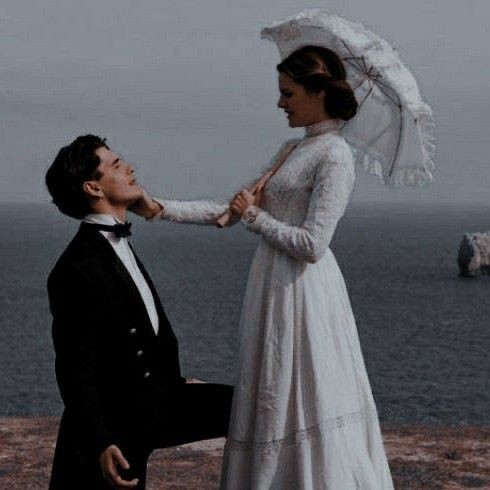
This is a new set of posts focusing on the period of time stretching from the late 19th century to the early 20th Century right up to the start of WWI. I'll be going through different aspects of life. This series can be linked to my Great House series as well as my Season post and Debutant post.
I get asked a lot about courting, what's acceptable or what's off limits and how one may woo a prospective spouse. So let's explore how to win the hand and heart.
Meeting (not so cute?)
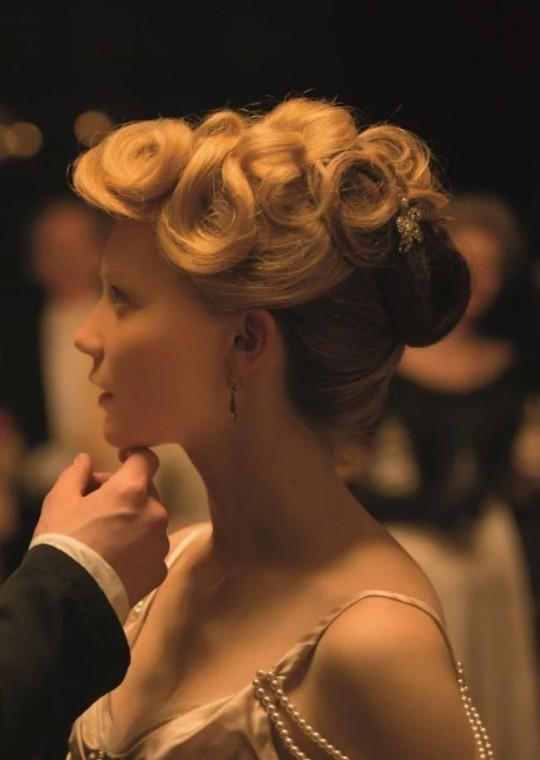
Firstly, it is really difficult to have a meet cute in the Edwardian era. Women and men are kept separate for most of the day, only really getting to meet at designated events: A dinner, a ball, a social event. Meeting in the park is a cute idea but a gentleman can't just approach a lady (or another gentleman) without being introduced by a third party, either a senior party or a mutual friend. However, an introduction at a ball is sort of like Cinderella's get up, it ceases to matter when the ball is over. Your gentleman must not approach a lady after that ball, he must be reintroduced. Once an introduction has been made, he can speak with her.
An Interest
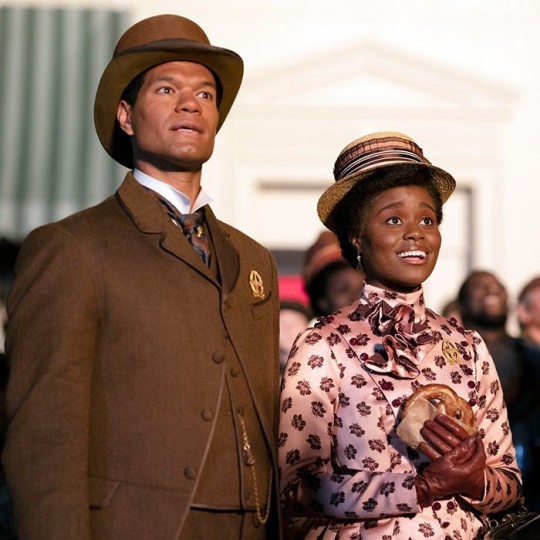
When an introduction has gone satisfactory, a gentleman must make the first move by calling to her parents'/guardian's home and making a formal request to begin courting. Her parents/guardians must consent, usually leading to a short brief interview of the gentleman's family, his connections, his wealth (though in not so vulgar terms, they may inquire where he lives which is an indicator). The woman's opinion did matter, she could give her reasons for accepting or turning down the offer. When the interest is approved, the gentleman can start offering invitations.
Three's Company
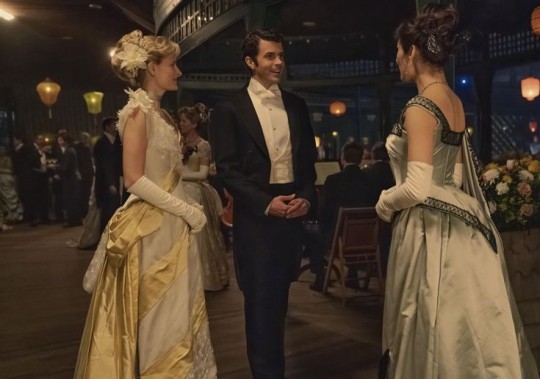
Of course, just because the parents agree, doesn't mean the couple gets to be alone. The young lady will be accompanied by a chaperone either a lady's maid, a governess, her mother or another female relative. While the couple is together, the chaperone will always be a few steps behind or have them in sight. She's there to ensure that nothing more than a conversation happens. This is not only for her young lady's reputation but also to save the man from any claims of impropriety. The chaperone also serves as a sort of spy, gauging whether this relationship is worth pursuing.
Activities & Tokens
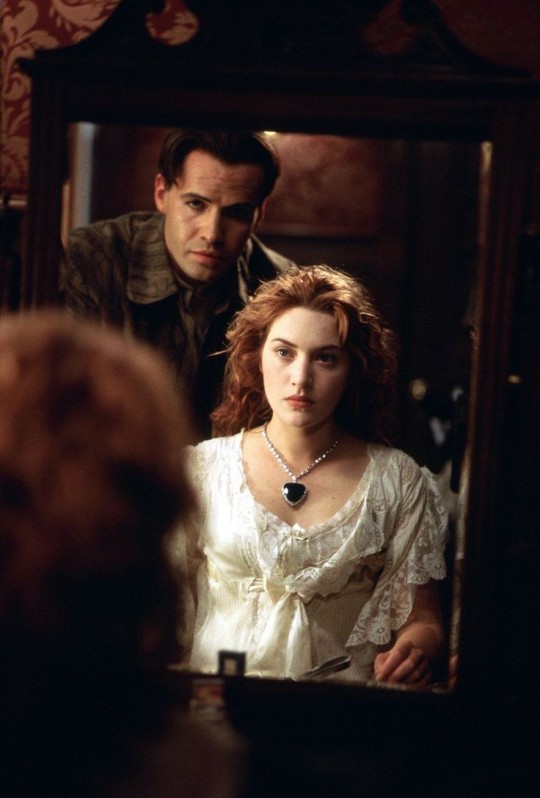
A gentleman may invite a lady out to lots of different activities. He can invite her for a promenade at a local park or gardens, out the theatre, visit her at home, invite her to galleries, to balls or to be his companion at sporting events such as the races, tennis matches or boat races. When visiting in the house, the gentleman would be expected to speak with all the family, be polite and courteous. This is how the family guages his suitably. The gentleman must provide transportation and funds for any excursion. Gifts are to be refined as well. Expensive gifts are considered vulgar and will likely be turned down. Small gifts such as flowers, books, cakes are acceptable. Gifts aren't as important as the time spent together.
Rules of Engagement
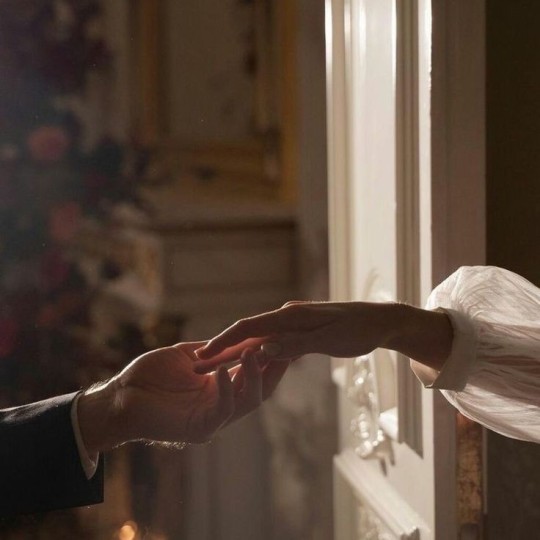
There are certain unspoken rules surrounding courtship that every gentlemen must follow for a successful courtship:
A gentleman should always pay attention to his lady, and not exclude her or cast her off for others
A gentleman never smokes in front of his lady nor forget to remove his hat.
A gentleman must always offer to refresh his lady on an excursion
A gentleman must defend his lady from any offense be it an insult or a scene unfit for her eyes or within an argument. Throwing in an apology for any offense can add a cherry on top.
However if she's the one giving offense, without any reason, the gentleman must seek to create peace, apologising on her behalf.
When walking, a lady will be placed in the inside of the pavement.
A gentleman should never spend above his means to impress his lady. Staying within his means is not only smart but a show of restraint and a glimpse of what life ought to be if they marry.
A gentleman should always offer his assistance when a lady is exiting a carriage or going up a flight of steps or carrying anything heavy.
If a man accompanies a woman to a ball, he's expected to dance with her on her first and last dances of the evening.
A gentleman must always make his intentions known and not string a lady along with no intention of marriage. He must never joke about his intentions or lead her on.
Marriage
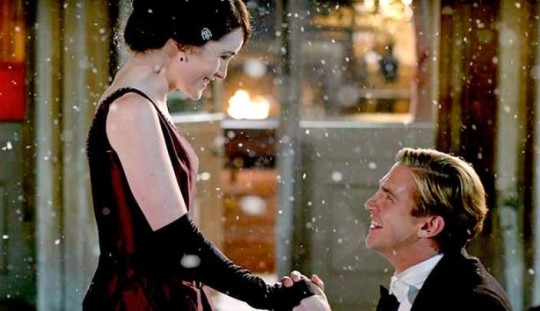
Courtship usually promises marriage which is why a gentleman or lady should not enter into courtship unless they would consider marriage. Courtship may last a few months or a few weeks and while it is going on, both sides should consider whether marriage would be a viable option of either of them. Parents/guardians would be consulted, the gentleman must make his intentions known to her father or nearest male relative before approaching the lady and popping the question. A courtship that doesn't end in marriage is seen as a failure and may damage the reputation of both parties, leading people to wonder what happened and who is to blame. For example is a perfectly eligible gentleman will not marry a perfectly eligible lady or she turns down his offer, people will usually leap to the conclusion that there is something lacking.
LGBTQIA+ Courting
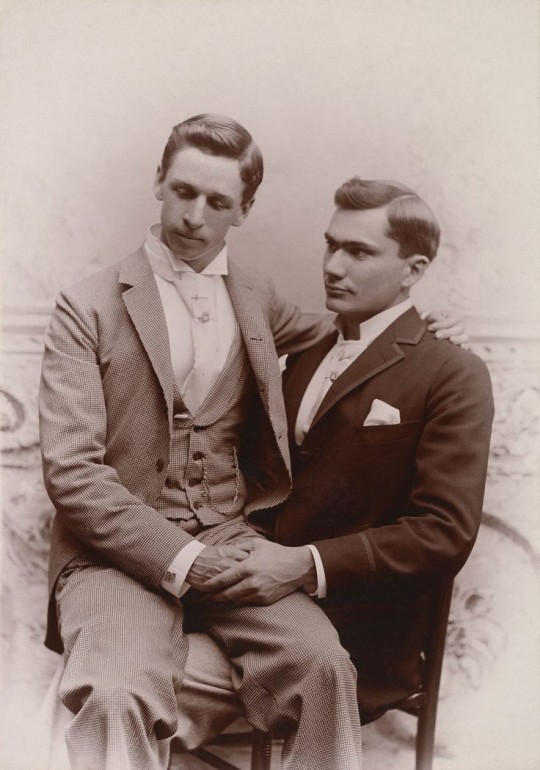
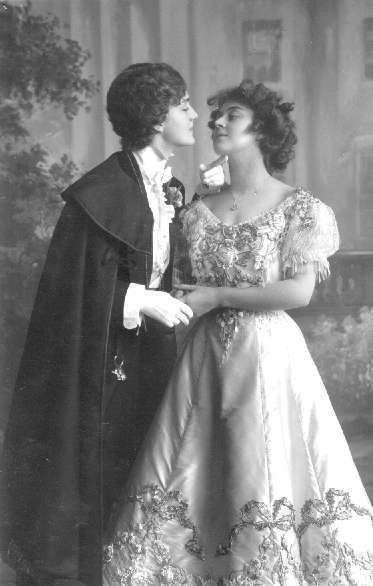
Gay people have always been here. They have courted and they have loved. Whilst it was illegal in this time in many parts of the world, love did prevail. (fun fact: lesbianism wasn't illegal because nobody wanted to explain what it was to Queen Victoria). The good thing to know is that courting whilst gay was likely easier in this period. Whilst there were restrictions and rules for straight couples and chaperones haunted their every step, none of this would happen if two people of the same gender stepped out together. Two gentleman going to the opera together or dining at a restaurant or attending a ball together (dancing in public was unlikely) or two ladies promenading in the park or attending a concert would not be examined like a courting couple. They would have more freedom to move around but of course, with legal impediments PDA was kept a minium. Whilst they wouldn't be allowed to marry legally, there was little stopping couples from moving in together. Nobody would say much about two spinsters sharing a home or two bachelors crashing together
#Etiquette of the Edwardian Era and La Belle Époque Courting#Courting#Courtship#The Edwardian Era#belle epoque#The gilded age#Edwardian#Etiquette#Fantasy Guide#Writing guide#Writing resources#Writing resource#Writer resource#Writer's resources#Writing reference#Writer reference#Writer's reference#writing#writeblr#writing resources#writing reference#writing advice#writer#spilled words#writers
1K notes
·
View notes
Text
Etiquette of the Edwardian Era and La Belle Époque: A Day in the Life of a Socialite
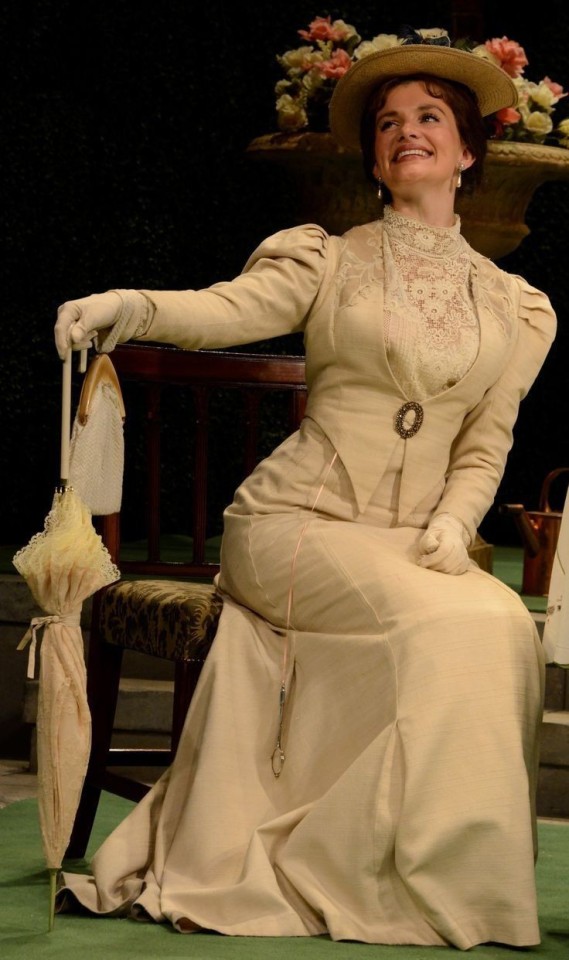
This is a new set of posts focusing on the period of time stretching from the late 19th century to the early 20th Century right up to the start of WWI. I'll be going through different aspects of life. This series can be linked to my Great House series as well as my Season post and Debutant post.
The socialite depending on her rank and country of origin, is the heart of the social world within this time period. It is she who hosts grand balls, attends them, hosts dinners where couples fall in love. But what does she get up to on a regular day?
Morning
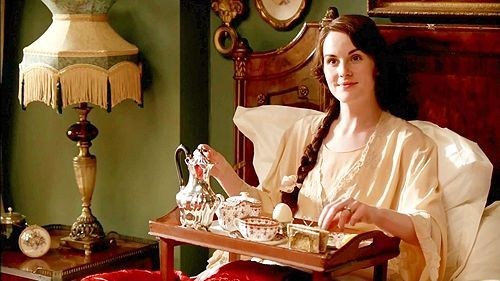
The morning of the socialite usually began early - if she hadn't attended or hosted a ball the night before. Around 9, the Socialite would be awoken by the arrival of her hot water by her lady's maid. If she was married, she would have the luxury of staying in bed to eat breakfast. After she has eaten, she would ring for her lady's maid to help her dress. If she is not married, she would dress first and head downstairs and have breakfast with her unmarried sisters, her brothers and father. After breakfast, the married socialite would withdraw to her business of the day, such as meeting with the chef to discuss menus for the following days. She might look over paperwork and letters concerning the house, her social circle and for charities she supports. The unmarried Socialite might just jump straight into her charity work.
Midday - Afternoon
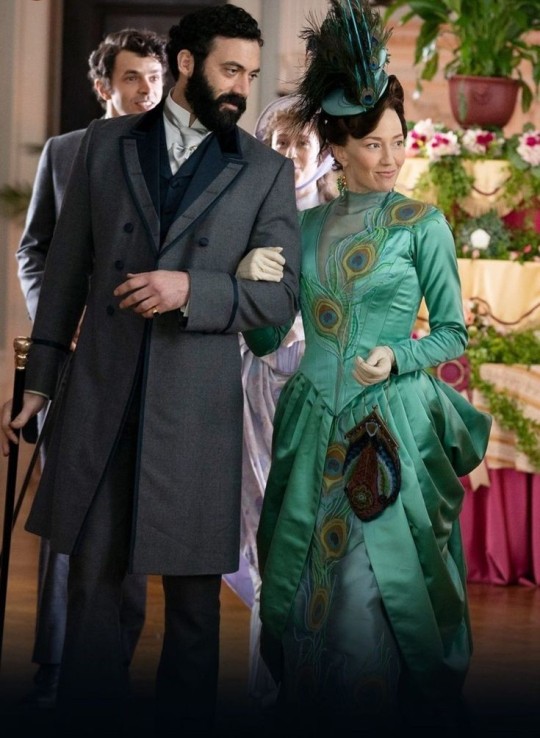
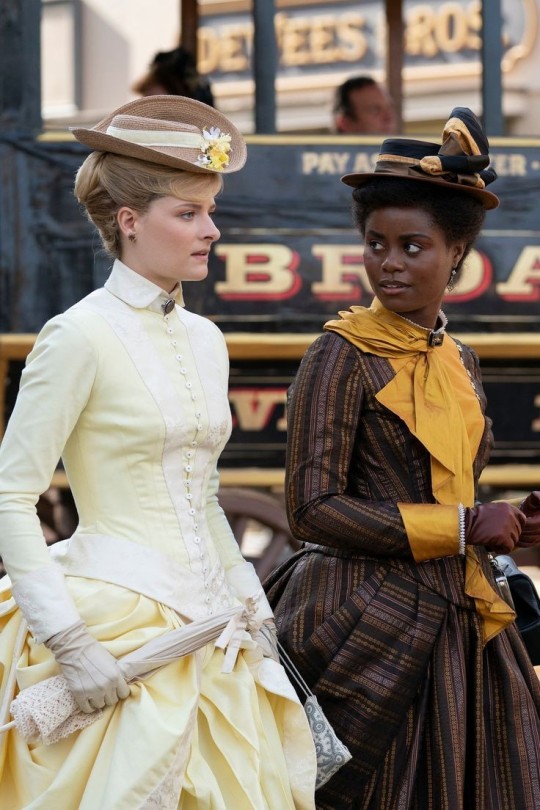
Luncheon would be served around 1. After luncheon, the ladies of the house may travel to appointments such as fittings or paying calls to friends. Paying calls means dropping in, leaving one's card at the door and being admitted for a chat or some tea. Unmarried socialites might be attended by a lady's maid. Socialites may attend charity meetings, board meetings at this time. Tea would be served around four. After the tea is finished, the children would be brought down to spend time with their mother. This might be the only time a Socialite mother saw her children.
Evening
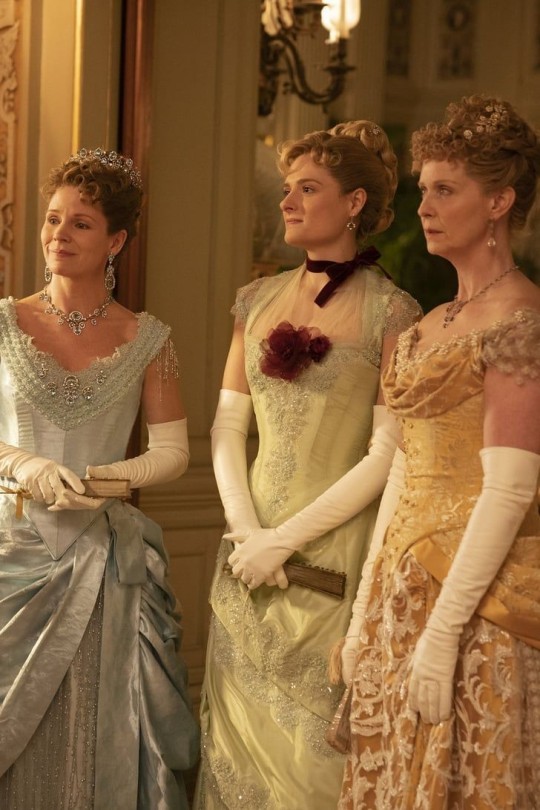
On a quiet evening at home, around 8, the butler would signal the start of supper giving the family and any staying guests, 15mins or more to get ready. Lady's maids would already be upstairs at this point, helping their mistress with dressing. When the Socialite head downstairs, linger in the drawing room to chat with the family snf any guests they might have. She would withdraw to the drawing room for coffee and tea with the other ladies while the men stay in the dining room to drink and smoke. When the men have finished, they join the ladies before going up to bed for cards and such.
On evenings, she would be a guest, she would repeat most of the steps above but instead, travel to dinner in her carriage. She would arrive, be announced and then escorted to the salon to greet her hostess and her fellow guests. If unaccompanied, she would be accompanied to dinner by an eligible male guest who is know to her. She wouldn't stay over if she's unmarried but head home afterwards.
On evenings that she's hosting an event (must married), she would repeat all the steps from a quiet night at home but everything would be larger, grander. She would be downstairs early to see to the details, waisting in the drawing room to greet her guests.
Hobbies
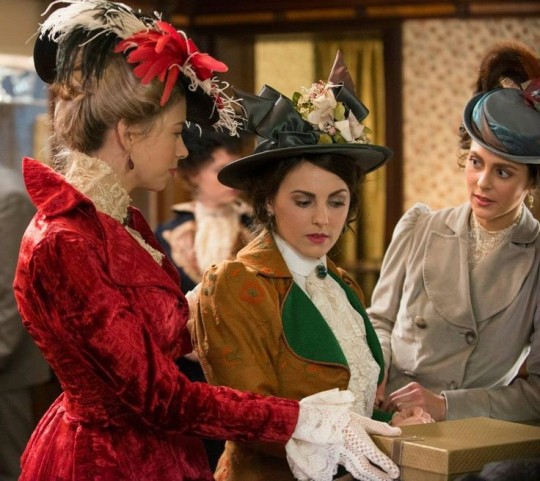
Socialites don't work so they will usually spend their day keeping busy. Married Socialites of course have a household and family to run. But all Socialites had an array of hobbies to keep herself occupied. As mentioned before, a socialite would patron charities. These usually involved little to no actual labour, it was more about raising awareness, raising money and occasionally visiting - often censored - the places they were supporting. The socialite would often spend the day shopping, this was the era of the rise of the department store. She would also attend a dressmaker's for fittings and consultations. She might enjoy physical pursuits like tennis, horseback riding or taking the air, all of these will of course be moderate hobbies. Watercolours, music and embroidery were popular hobbies of the time.
#Etiquette of the Edwardian Era and La Belle Époque#A Day in the Life of a Socialite#The gilded age#The belle epoque#The Edwardian Era#Edwardians#writing#writing resources#writeblr#writing reference#writer's problems#writer#writing reference writing resources
244 notes
·
View notes
Text
Etiquette of the Edwardian Era and La Belle Époque: Tea
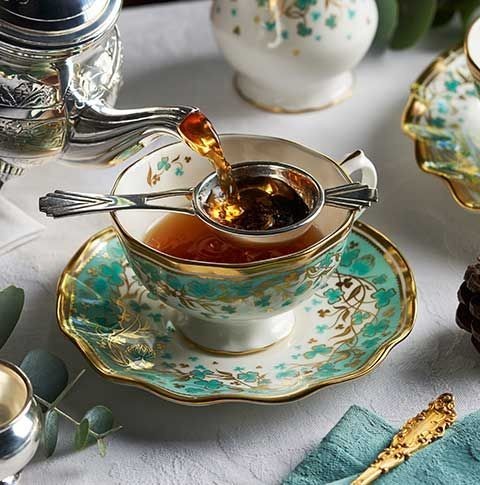
This is a new set of posts focusing on the period of time stretching from the late 19th century to the early 20th Century right up to the start of WWI. I'll be going through different aspects of life. This series can be linked to my Great House series as well as my Season post and Debutant post.
Today will be focusing on the rules of tea with this time period.
Tea was a staple in society, not only as a comforting beverage but as a social gathering beset by strict rules. Etiquette at tea is not only important for guests but is a sign of respect to one's host.
High Tea vs Afternoon Tea
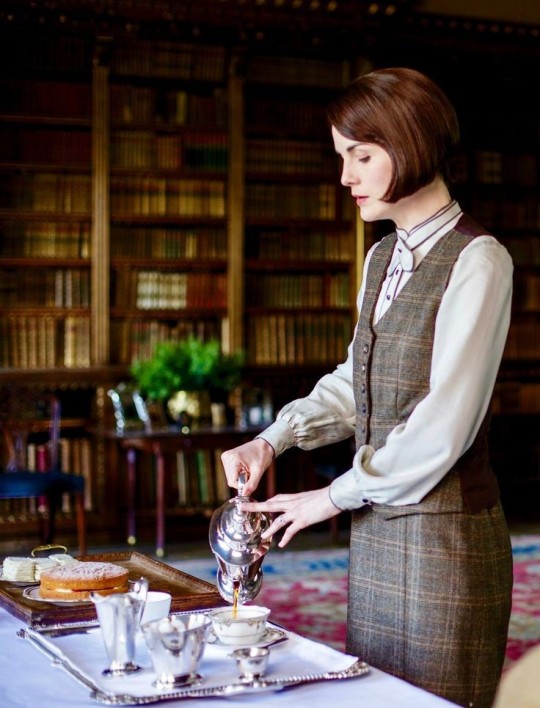
You're reading both terms and you're thinking high tea is the formal version and afternoon is informal. In fact, no. It is the opposite. High tea was actually served far later, about 6pm/7pm and focused on more savoury, substantial dishes. High tea was more of a lower class tradition, designed to fill the stomachs of hungry workers. The word "high" is derived from the tall tables used. Afternoon tea is served at 4pm, designed to fill the gap between lunch and dinner. Afternoon tea is served at low tables with all the guests seated and involve a lighter meal, more nibbles than anything.
Hosting and Attending Tea
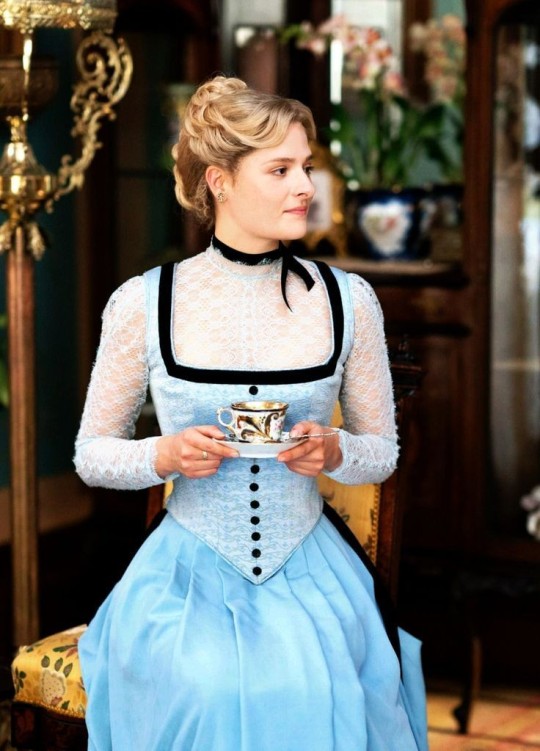
Tea is an event that happens every day, it's not an excuse for a snack, it's a ritual. One can have tea served in one's own home or at the home of a friend. One must be invited to tea, one can't just show up and expect to get fed. Tea was typically served in libraries or drawing rooms and done times outside in the gardens if weather permits. One had to dress for tea usually in comfortable but appropriate clothing. Men would wear suits, women would wear tea gowns or a simple gown - keeping their hats upon their head, if they are visiting. Tea was not poured by the footman but by the host or if it is a large party, by one assigned guest. The hostess or designated tea pourer would serve themselves last.
The Tea Set
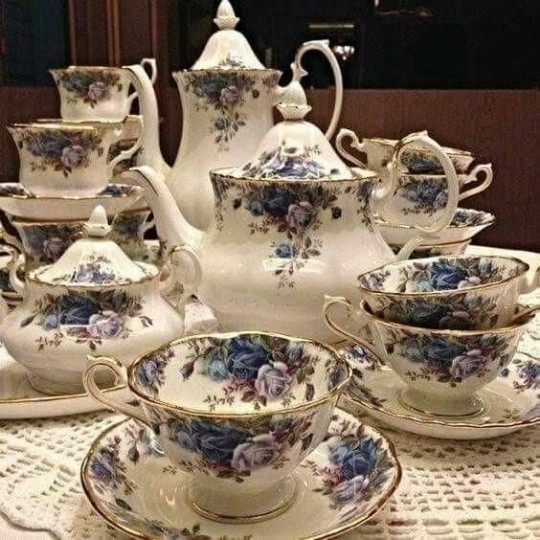
Tea sets are highly coveted and much remarked upon at tea. One would usually inherit a service (that's what the collection was called) or be gifted it at one's wedding. Services would all match and most households had different kinds, the best usually reserved for important guests.
Teapot: the tea pot held the hot water and tea leaves was was usually made of china and decorated.
Cups: the cups were generally low, shallow.
Saucer: a small plate for the cup to rest on
Tea cannister: where dried tea leaves would rest until needed.
Sugar bowl: was a small container made of china with a cover to protect the sugar from moisture.
Milk jug: a container for the milk
Slop basin: was a porcelain dish used for disposing tea leaves left behind with the dregs of tea.
Tea spoon: small spoon used to stir tea
Side Plate: small serving plate used for food.
As you might have noticed, other than a tea spoon, cutlery is not listed. There would be a spoon for jam and a knife for a scone, most food was designed to be eaten with one's hands.
There is also one instrument not listed here and it's the most recognisable thing at afternoon tea.
The Tiered Tray
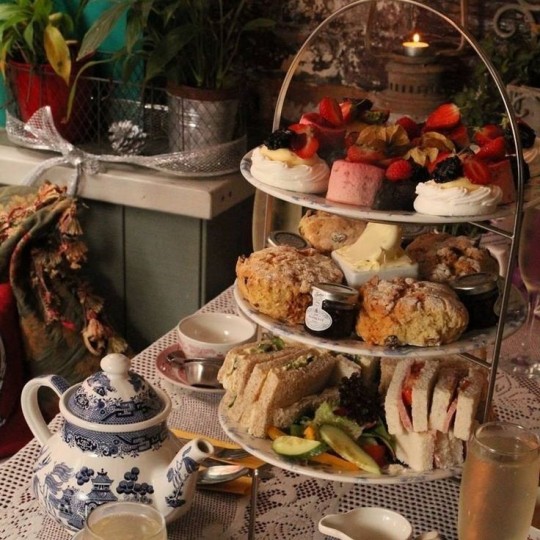
The tiered tray is a set of trays stacked upon one another holding on each one, a different course. Sandwiches and savouries were served on the bottom (Favourites include smoked salmon, cucumber, cress, egg salad sandwiches), scones on the second and sweeter delights served on the top (sponge cake, macaroons, pastries etc). One would begin ay the bottom and work one's way upward.
Making the Perfect Cup of Tea in the Edwardian Era/Belle Epoque/Gilded Age
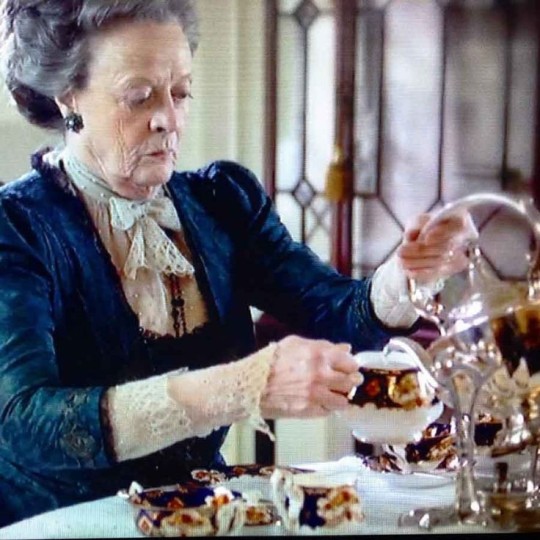
Disclaimers: Let's make one thing clear. Tea is not prepared one way for all. Tea is culturally important across the world and every culture has their own rules about how tea is consumed and served. There's no one right way.
I will be discussing the English way of brewing tea in this post.
As mentioned before, tea is held in a cannister before use. Tea leaves were added to the hot water and lightly stirred.
Controversially for most people, milk was commonly added first.
One would then set a strainer in one's cup, tilting the pot. The strainer will catch the leaves and leave your cup almost tea-pulp free.
With the tea added, one could add in sugar. The trick is not to make a show about it or be too loud. One simply should gently turn your spoon from the 6 o'clock position to the 12 o'clock position. Also, the spoon rests on the saucer when not in use and doesn't stay in your cup.
When drinking your tea, put your pinky down. That's an American myth. Simply lift your cup to you, lifting the cup to your mouth by the handle. Saucers are not lifted unless your cup is far away. Don't slurp it, there's plenty more where that came from.
Etiquette at Tea
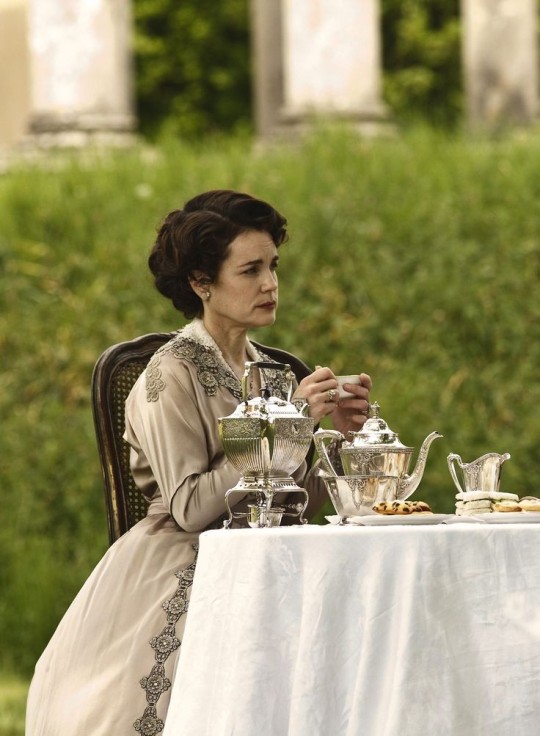
Afternoon tea is for light conversation, do avoid heavy topics.
Listen attentively when being spoken to.
Don't talk with your mouth full or stuff your mouth. Typically everything should be polished off with 2-3 bites.
Gloves should be removed at tea because one is eating with their fingers.
If one is leaving the table to go to the bathroom or a breath of air, simply turn to your neighbours and excuse yourself. No explanation needed.
Napkins should be removed from the table and set across one's lap when one is sitting down. When finished with tea, set it beside your plate before you rise.
Also you daub, not smear.
Don't cut your scone but break it.
Don't lick your fingers.
Don't bang the spoon on the side of the cup.
Also there's no dunking biscuits into your tea. It's just not done at afternoon tea.
Never thank the staff for fetching anything - or at very least, don't be overhead doing so.
Always say your goodbyes to the hostess and compliment the tea, even if you had a rubbish time.
Also most importantly, never criticise somebody else's manners. That's the height of rudeness.
#Etiquette of the Edwardian Era and La Belle Epoque#Tea#Afternoon tea#High tea#Tea party#Edwardian Era#Gilded age#Belle Epoque#writing resources#writing reference#writing advice#ask answered questions#writing advice writing resources#writers#writeblr#writing#writing research#Writing resources writing reference#Writing reference writing advice#Writing advice writing reference#Fantasy guide
875 notes
·
View notes